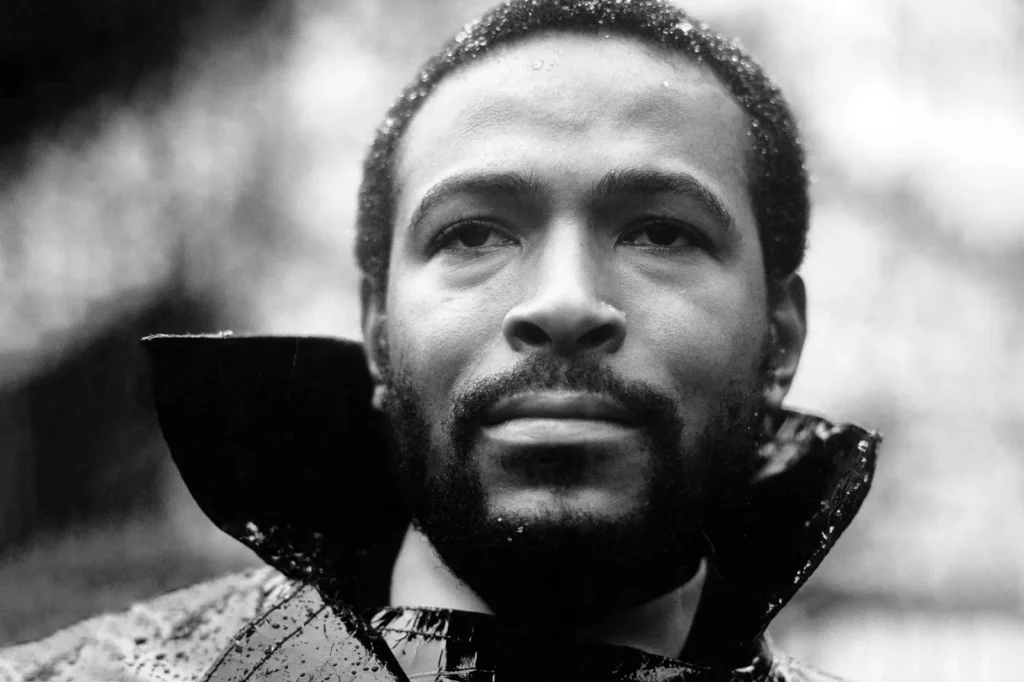
Rediscovering Connection and Intimacy in Marvin Gaye‘s “Sexual Healing”
When Marvin Gaye released “Sexual Healing” in 1982, the world was introduced to a song that would not only dominate the charts but also redefine the landscape of soul and R&B music. At a time when Gaye was emerging from a tumultuous period both personally and professionally, this track became a beacon of his artistic revival and personal reconciliation. It reached number three on the Billboard Hot 100 chart and claimed the number one spot on the Hot Black Singles chart, marking it as one of the most successful hits in his illustrious career.
“Sexual Healing” is more than just a song; it’s an exploration of vulnerability, desire, and the profound need for human connection. Emerging after a self-imposed European exile, Gaye was grappling with financial troubles, divorce, and issues related to substance abuse. During this challenging chapter of his life, he sought solace in music—a medium through which he could express his yearning for love and healing.
The inspiration for “Sexual Healing” struck during Gaye’s stay in Ostend, Belgium. It was there that he collaborated with Odell Brown and David Ritz, who helped him channel his feelings into lyrics that were both deeply personal and universally relatable. Ritz, visiting Gaye during this period, observed his emotional turmoil and suggested that what Marvin needed was “sexual healing.” This conversation planted the seed for what would become one of the most iconic songs of the early 1980s.
At its core, “Sexual Healing” is a testimony to the transformative power of love and intimacy. With its sultry groove and smooth melody, it invites listeners to embrace their own emotions and vulnerabilities. The song’s lyrics convey a sincere plea for affection and connection—an antidote to loneliness and heartache. For many listeners, this resonated deeply, evoking memories of their own experiences with love’s restorative power.
Musically, the track marked a departure from Gaye’s previous work, incorporating elements of reggae-infused funk with electronic instrumentation—a nod to the burgeoning technology of the era. This innovative blend not only rejuvenated Gaye’s sound but also expanded his audience, capturing the imagination of both older fans who had followed his career from its beginnings at Motown and younger listeners discovering him anew.
The impact of “Sexual Healing” extends beyond its chart-topping success; it represents a pivotal moment in Marvin Gaye’s legacy as an artist who continually evolved while staying true to his emotional core. For older generations who experienced its release firsthand, the song serves as a reminder of a time when music was a refuge—a place where they could lose themselves in rhythm while finding solace in shared experiences.
The nostalgic allure of “Sexual Healing” lies not only in its melody but also in its ability to evoke powerful memories—moments spent dancing at weddings, quiet nights spent reflecting on life’s complexities, or car rides where the tune played softly against an evening backdrop. For those who lived through those times, it is impossible to hear Gaye’s silky voice without being transported back to those cherished memories.
In today’s fast-paced world where connections can often feel fleeting or superficial, revisiting Marvin Gaye’s masterpiece reminds us of the enduring power of genuine emotional bonds. It calls us to remember that amidst life’s chaos, there is beauty in vulnerability—a truth articulated so beautifully through his timeless music.
As we listen to “Sexual Healing,” we are reminded not only of Marvin Gaye’s genius but also our own capacity for love and renewal—a lesson as relevant today as it was over four decades ago.
